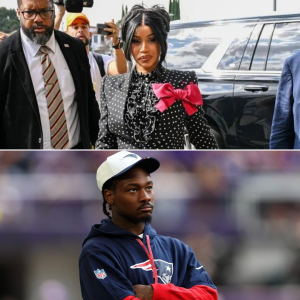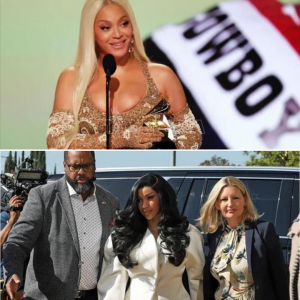In a convergence of media upheaval and political bombshells, recent events have sent shockwaves across the nation, revealing deep-seated issues within both Washington D.C.’s political circles and the legacy media landscape. From the potential demise of a daytime television institution to a former president’s bold plan to tackle urban crime and a high-profile congressman facing serious allegations, the threads of these seemingly disparate stories are weaving a complex and telling narrative about the current state of American society.

The Curtain Falls on “The View”?
For decades, “The View” has been a staple of daytime television, a platform for lively, often contentious, debate. However, the show now finds itself at a critical juncture, with rumors of its impending cancellation gaining traction. The speculation was given significant weight by one of its most famous alumnae, Rosie O’Donnell. In a candid admission, O’Donnell suggested that the show’s pronounced liberal bias has become its Achilles’ heel. She attributes the potential cancellation, perhaps with a hint of irony, to “Trump’s fault,” arguing that the show’s relentless anti-Trump stance has alienated a vast segment of the American audience.
Trish Regan, a prominent conservative commentator, offers a more nuanced analysis. While acknowledging O’Donnell’s point, Regan contends that the issues plaguing “The View” are multifaceted. She points to the broader economic shifts in the media industry, where traditional television is struggling to compete with the burgeoning world of independent online content creators. More pointedly, Regan argues that the show’s sustained, one-sided political narrative has created an echo chamber that no longer resonates with a public hungry for diverse perspectives. This sentiment is apparently shared by ABC executives, who are reportedly conducting a “bias review” of the show, a move that O’Donnell interprets as the writing on the wall. The potential cancellation of “The View” is more than just a programming decision; it’s a symbolic moment that reflects a larger cultural and media reckoning.

Trump’s Bold Move on D.C. Crime
As the drama unfolds in the television world, a political storm is brewing in the nation’s capital. President Donald Trump has announced a dramatic and unprecedented plan to address the escalating crime rate in Washington D.C. Declaring his intention to “take on DC,” Trump has stated he will deploy the National Guard to the city to restore order and “get rid of the slums.” This announcement was met with predictable criticism from some quarters, with The New York Times reportedly questioning the accuracy of his crime statistics.
However, the data appears to support Trump’s concerns. As Trish Regan highlighted, Washington D.C.’s homicide rate is alarmingly high, surpassing that of major international cities like Mexico City and Lima. The gravity of the situation seems to have struck a chord even with those on the other side of the political aisle. In a surprising development, D.C. Mayor Muriel Bowser, a Democrat, has expressed an openness to federal assistance, stating, “we would welcome the help.” This rare moment of bipartisan agreement underscores the severity of the crisis and the desperate need for effective solutions. Trump’s plan, while controversial, has forced a national conversation about urban decay and the responsibilities of leadership in addressing it.
The Shadow Over Adam Schiff
Adding another layer of political intrigue to the mix, Congressman Adam Schiff, one of the most prominent Democratic voices in the country, is now reportedly under investigation by the Department of Justice. The allegations are serious: mortgage fraud. Schiff is accused of falsifying his primary residence to obtain favorable mortgage benefits. The news has, unsurprisingly, drawn comment from Donald Trump, who has publicly accused Schiff of committing “a bad thing” and “mortgage loan fraud.”
This investigation brings Schiff’s credibility into sharp focus, particularly given his history of making strong, often unverified, claims. His past assertions about Russian interference in the 2016 election and his pointed attacks on media figures like Tucker Carlson are now being viewed through a new, more critical lens. The allegations against Schiff, if proven true, would not only have significant legal ramifications for the congressman but would also deal a severe blow to the Democratic party’s image and its claims to moral high ground.

A Party in Turmoil
The challenges facing the Democratic party are not limited to the allegations against Adam Schiff. A broader sense of unease and disarray seems to be permeating the party’s ranks. The brand itself is in trouble, a sentiment echoed by CNN analyst Harry Enten, who bluntly described it as “garbage” in the eyes of many voters. This perception is fueled by a number of factors, including the perceived disconnect between the party’s leadership and the concerns of everyday Americans.
The internal struggles are further exemplified by the situation surrounding Senator Bernie Sanders, who appears unwilling to “pass the torch” to a new generation of leaders. This reluctance to embrace change and foster new talent has left the party appearing stagnant and out of touch. In Chicago, Mayor Brandon Johnson is grappling with the harsh realities of unsustainable spending policies, with residents fleeing the city in the face of high taxes and rampant crime. These individual stories paint a larger picture of a party at a crossroads, struggling to define its identity and articulate a vision that resonates with a weary and disillusioned electorate.

The story of “The View,” the drama in D.C., and the scandals engulfing political figures are more than just headlines. They are symptoms of a deeper societal malaise, a crisis of trust in our institutions, and a yearning for authenticity and leadership. As the landscape continues to shift, one thing is certain: the American public is watching, waiting, and demanding more from both their media and their elected officials.





